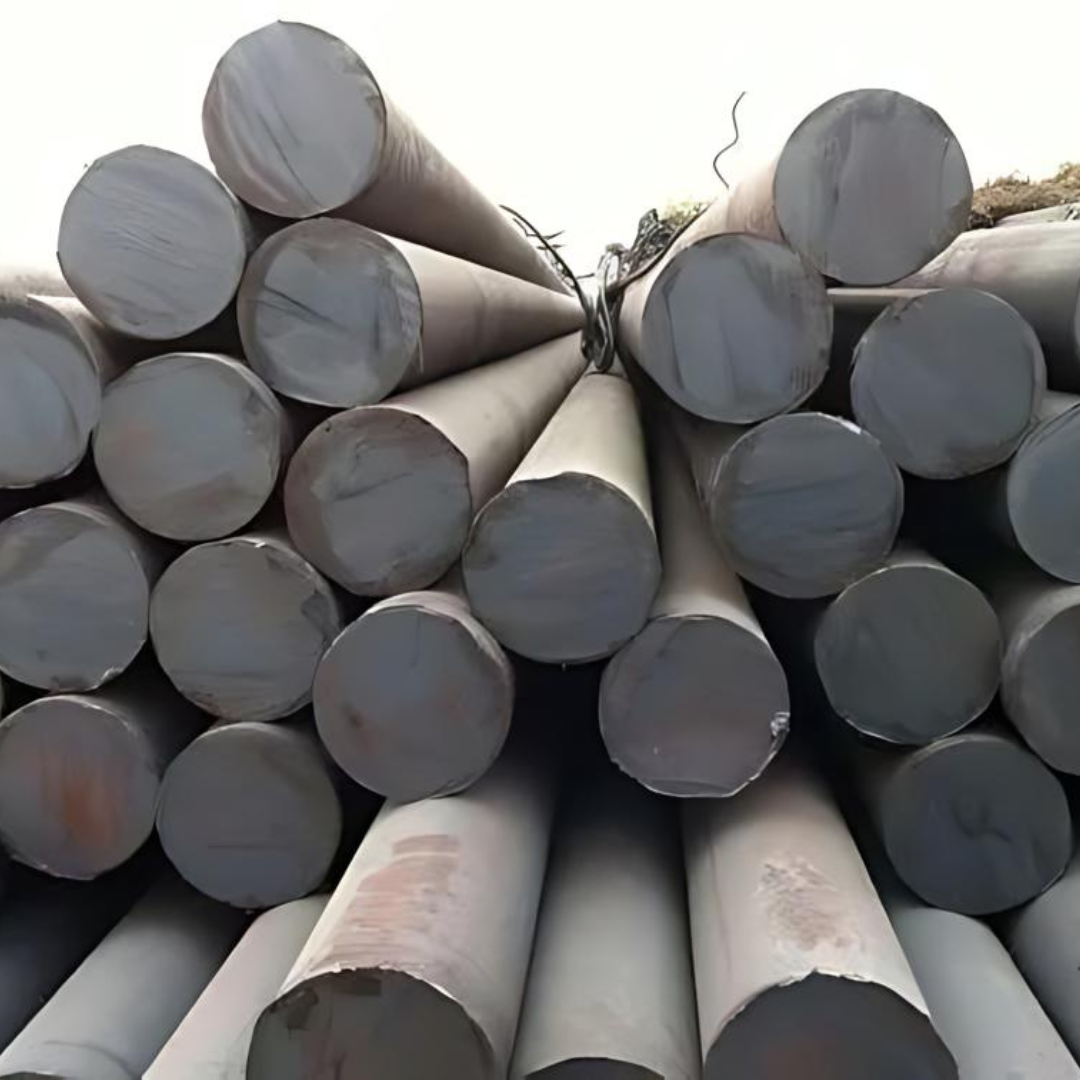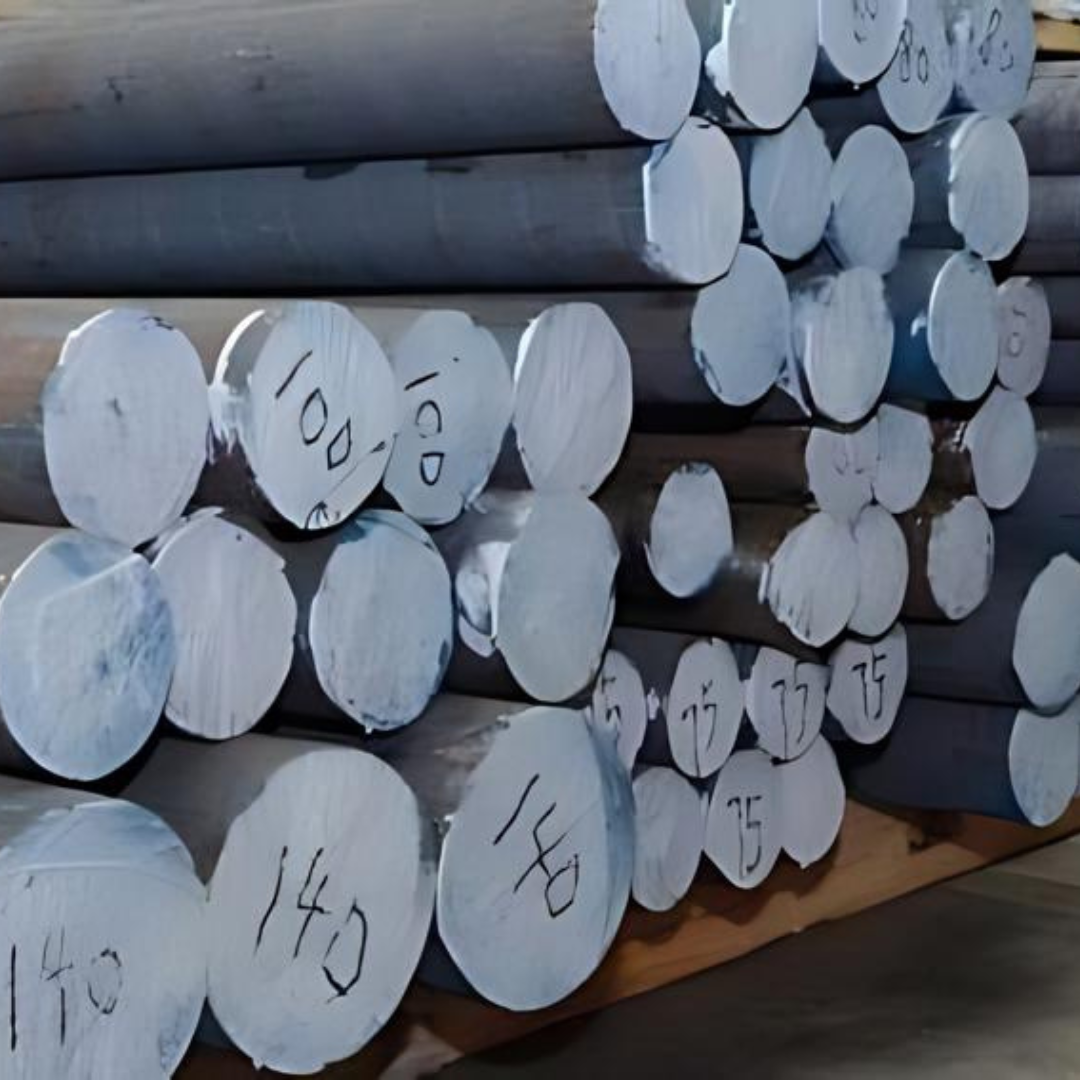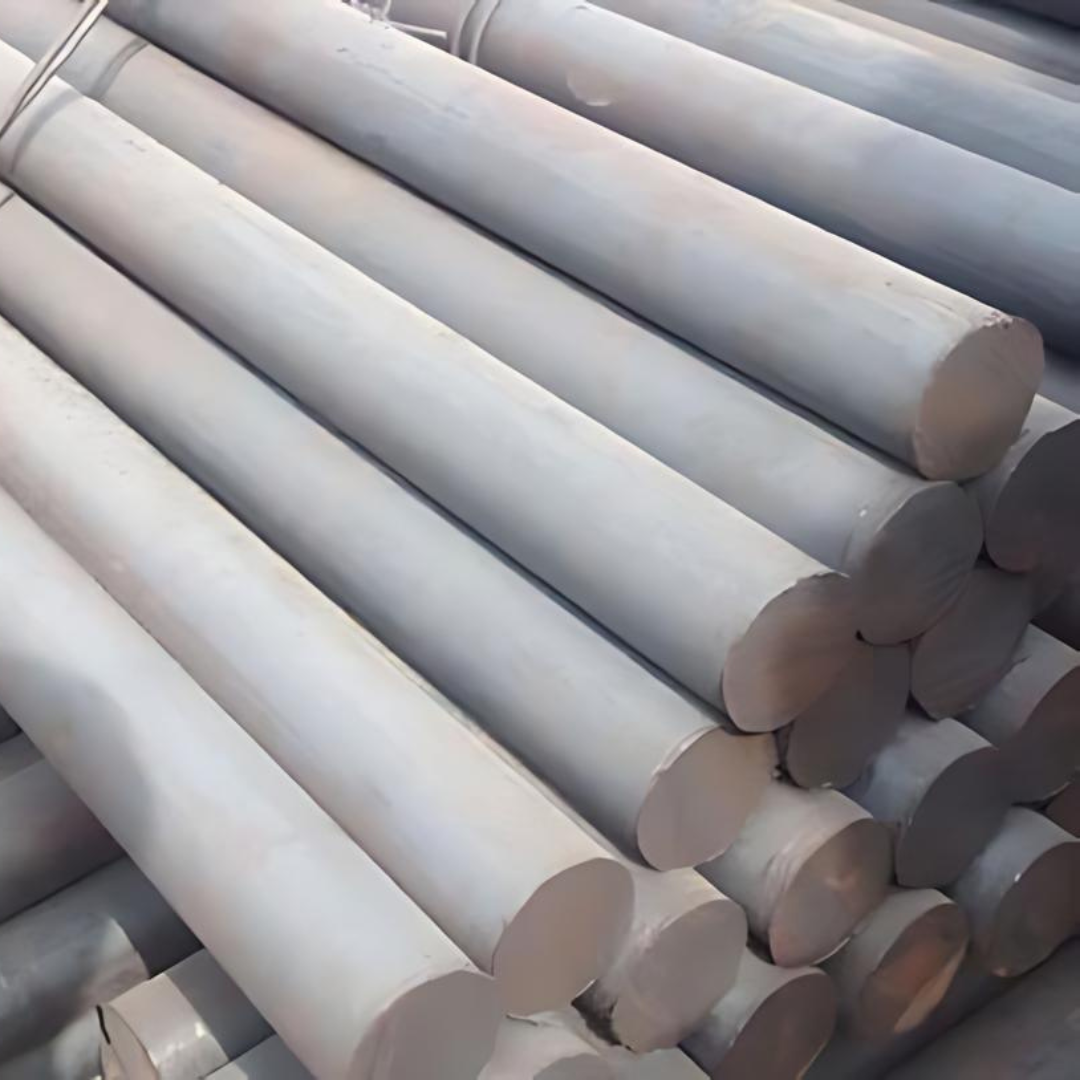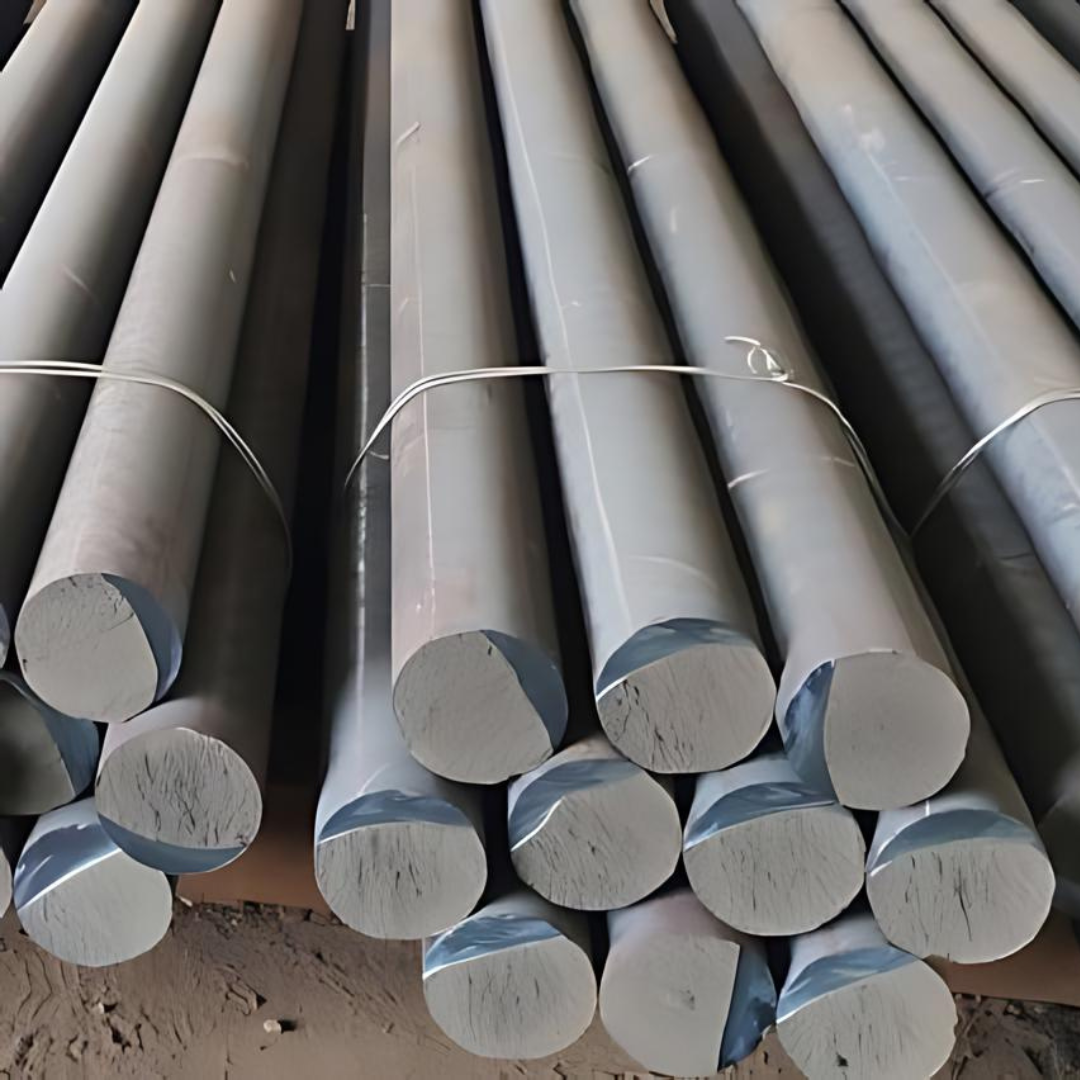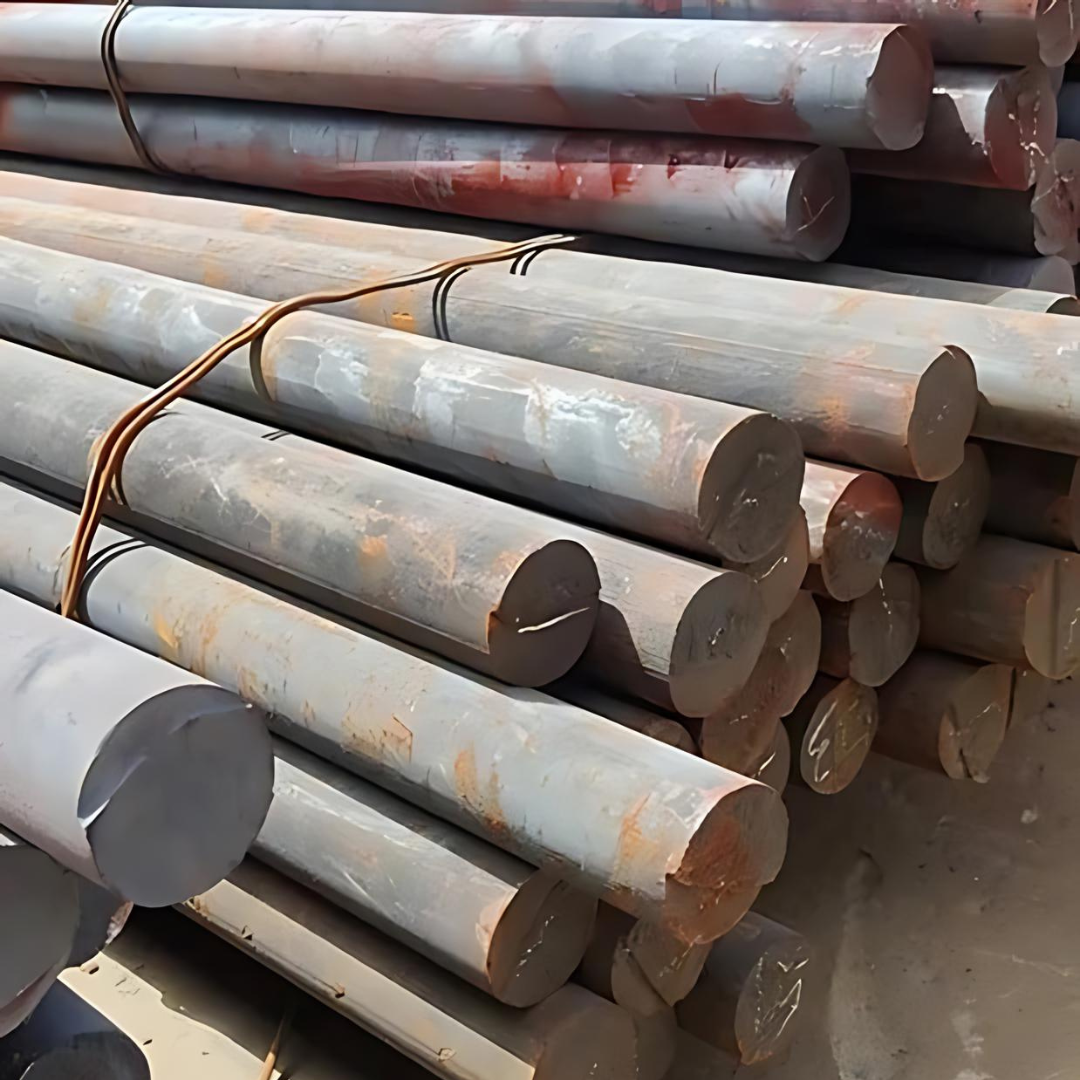Product Overview
Cast iron is a term used to describe a family of metal alloys whose primary alloying element is iron. Because of its name, some people tend to think that cast iron is 100% iron. This is simply not true. Carbon steels have higher amounts of iron element in them than cast irons.
To be considered a cast iron, a predominantly iron alloy must have over 2% carbon to for the final alloy to be considered cast iron. Cast irons also have smaller amounts of other alloys, with manganese and silicon being two of the most popular. These additional alloying elements are used to further modify the properties of cast iron and result in specific cast iron alloy designations.
There also is not just one group of cast irons. There are four major subtypes of cast iron alloys. These are:
Ductile cast iron: Contains nodules of graphite making it more ductile than other cast irons while still having excellent strength properties
Gray cast iron: Has flakes of graphite in it which improves its machinability relative to other cast irons
White cast iron: Has high amounts of iron carbides, making it very brittle but with a high degree of wear resistance
Malleable cast iron: Essentially white cast iron that has been specially heating treated to transform the iron carbides into graphite nodules; it has similar properties to ductile cast iron
How is cast iron made?
The manufacturing process of cast iron is how the metal gets its name. To make cast iron, iron ore is heated in a furnace until it becomes molten. Then the molten metal is cast (poured out and allowed to harden, in the shape of an ingot). The cast iron ingots are melted again into a final mold. During this subsequent remelting, the cast iron may have several metallurgical modifications made to it through the introduction of alloying elements or heat-treating processes. Oftentimes, this is where cast iron falls into the specifications of one of the four groups mentioned above.
Cast iron, when molten, has better fluidity than steel. Cast iron also has a low melting temperature. These two attributes make cast iron an ideal candidate for the casting process. This is partially why it is so popular. However, with improved technology for manufacturing and forming steel, the use of cast iron has diminished over the past several centuries.
Where is cast iron used?
Cast iron is used abundantly in applications that require high hardness and abrasion resistance and are less concerned about structural properties. This is because steel can generally be modified to have more desirable structural characteristics than cast iron for many projects. Although, before steel became more common, cast iron was somewhat popular for structural purposes. Cast iron is also quite affordable because of its basic alloying element requirements and low-cost method of production. Therefore, it is still quite common to see cast iron used around the world today.
Here are some examples, although it is important to know that these will vary depending on what one of the four types of cast iron mentioned above is selected:
- Brake discs
- Gears and gear plates
- Sprockets
- Chains
- Machinery
- Cookware
- Decorative architectural pieces
- Engine blocks
- Shafts and rods of various types
- Housings
Dimensions: 30mm to 350mm
Cast Iron Round Bars: Specifications, Uses, and Suppliers in the UAE
A vital raw material supplying the UAE's extensive manufacturing, industrial, and construction sectors are cast iron round bars. These sturdy metal bars are essential for a variety of heavy-duty applications because of their outstanding compressive strength, superior wear resistance, and superb machinability. Everything you need to know about cast iron round bars is covered in this comprehensive guide, from technical details to locating trustworthy vendors in UAE and making wise purchases.
What are Cast Iron Round Bars? Definition and Key Properties
Melted iron is poured into a mold to create cast iron round bars, which are solid, cylindrical bars. Cast iron's unique qualities come from the alloying of iron with silicon and carbon, usually with a carbon percentage of more than 2%.
Key Properties that Make Them Essential in the UAE:
- High Compressive Strength: Excellent resistance to high pressures and loads is essential for structural elements.
- Superior Wear Resistance: Perfect for parts that are prone to abrasion and friction, which are frequent in industrial environments and the arid climate.
- Excellent Machinability: Cast iron's graphite makes it simple to cut, drill, and shape, which saves money and time during manufacture.
- Good Vibration Damping: It is ideal for machine bases and engine blocks because it absorbs energy and lowers noise.
- Cost-Effectiveness: For many applications, they are typically less expensive than steel round bars, providing an excellent trade-off between cost and performance.
Types of Cast Iron Round Bars: Choosing the Right Grade for Your Project
Cast iron is not all the same. There are several varieties, each with special benefits, depending on the alloy's composition and manufacturing method.
- Gray Cast Iron Round Bars (Most Common)
The most widely used type, characterized by its gray fracture appearance due to graphite flakes.
- UAE Applications: Engine blocks, pump housings, machine tool structures, gearboxes, and pipe fittings.
- Advantages: Best-in-class damping capacity, good thermal conductivity, and easy to cast into complex shapes.
- Ductile Cast Iron Round Bars (Nodular Iron)
Magnesium treatment creates spherical graphite nodules, which give it significantly more strength and ductility than gray iron.
- UAE Applications: Water and oil pipeline parts, high-pressure valve bodies, crankshafts, and heavy-duty gears.
- Advantages: Combines steel-like mechanical qualities with gray iron's machinability. extremely impact-resistant.
- White Cast Iron Round Bars
Cementite, which contains carbon, is hard and brittle. frequently employed in situations requiring high abrasion resistance.
- UAE Applications: Liners for wear plates in the construction industry, slurry pump components, mill balls, and mining equipment.
- Advantages: Outstanding resistance to abrasion and hardness.
- Malleable Cast Iron Round Bars
White iron that has been annealed retains its good machinability while being more ductile and robust.
- UAE Applications: Electrical fittings, hand tools, railroad parts, and farm equipment.
- Advantages: More elongation and better stress resistance than gray iron.
Top Industrial Applications of Cast Iron Round Bars in the UAE
Cast iron round bars are in great demand across a number of important industries due to the UAE's strong economy.
- Construction & Infrastructure: Used to fabricate unique fittings, brackets, base plates, and sturdy supports for construction projects and historic improvements.
- Automotive & Transportation: Essential for producing flywheels, suspension parts, brake drums, and engine components for the expanding automotive market.
- Oil, Gas, and Energy: Because they are durable and resistant to corrosion under harsh conditions, they are vital for valves, pump bodies, compressor parts, and wellhead equipment.
- Manufacturing & Industrial Machinery: The foundation of hydraulic parts, gears, pulleys, frames, and machine bases in factories and workshops.
- Marine and Offshore: Utilized in machinery that is resistant to the Arabian Gulf's corrosive environment.
Cast Iron vs. Steel Round Bars: A Crucial Decision for UAE Buyers
|
Feature |
Cast Iron Round Bars |
Steel Round Bars |
|
Carbon Content |
High (2% - 4%) |
Low (0.02% - 2.1%) |
|
Tensile Strength |
Lower |
Higher |
|
Compressive Strength |
Higher |
Lower |
|
Ductility |
Low (Brittle) |
High (Malleable) |
|
Machinability |
Excellent |
Good (varies by type) |
|
Vibration Damping |
Superior |
Fair |
|
Cost |
Generally, more cost-effective |
Generally, more expensive |
For non-tensile applications, cast iron is the best option if you require intricate castings, excellent damping, good wear resistance, and cost effectiveness. When you require great tensile strength, ductility, and weldability for load-bearing applications and structural supports, go with steel.
How to Source Cast Iron Round Bars in the UAE: Supplier Checklist
Finding a reliable supplier is critical for project success. Here’s what to look for:
- Material Certification: To make sure the material grade and composition satisfy international standards (such as ASTM, DIN, and JIS), always ask for a Mill Test Certificate (MTC) or Certificate of Conformity.
- Local Stock Availability: Import delays are minimized and quicker delivery is guaranteed by a provider with a sizable local warehouse in Mussafah, Abu Dhabi, or Jebel Ali, Dubai.
- Value-Added Services: Seek out vendors who provide threading, heat treatment, cutting, or machining services. Time and logistics expenses are reduced as a result.
- Industry Reputation: Look for well-established businesses like ADNOC, DEWA, or Emaar that have a history of providing important UAE industries.
- Technical Expertise: The team at your supplier should be well-versed in the optimum kind of cast iron for your particular use.
Essential Factors for Buying Cast Iron Round Bars in Dubai, Abu Dhabi, and Sharjah
Before you purchase, consider these points to ensure you get the right product:
- Diameter and Length: Verify if special sizes are required or if regular stock sizes are available.
- Grade Specification: Be (e.g., ASTM A536 for Ductile Iron, ASTM A48 Grade 35B for Gray Iron).
- Surface Finish: Is it polished, turned, or as-cast? Cost and application readiness are both impacted by this.
- Quantity: Better prices are frequently offered for larger orders.
FAQs: Cast Iron Round Bars
What is the price of cast iron round bars in the UAE?
Bar diameter, length, supplier markup, kind of cast iron (ductile vs. gray), and worldwide iron ore prices all affect the pricing, which is not set in stone. For the most accurate pricing, it is usually preferable to ask suppliers like Imaginary Steel LLC for a direct quote.
Can cast iron round bars be welded?
The high carbon content of standard gray cast iron makes it famously difficult to weld and can cause cracking. Certain filler rods, preheating, and specialized processes are needed. It is easier to weld ductile iron. It is frequently recommended to use bolting or machining for crucial applications.
How do I prevent cast iron from rusting in the humid UAE climate?
While cast iron has better corrosion resistance than plain carbon steel, it can still rust. Applications often use coatings like paint, powder coating, or grease to protect the surface. For harsh environments, consider alloys with higher nickel content.
Where can I find a metal supplier for cast iron rounds near me in the UAE?
The best places to start are the main industrial centers:
- Dubai: Al Quoz Industrial Area and Jebel Ali Free Zone (JAFZA) and
- Abu Dhabi: The Industrial Area of Mussafah
- Sharjah: Area of Industry 1-18
- Ajman: The Industrial Area of Ajman These areas are home to numerous trustworthy vendors that provide delivery services throughout the Emirates.
Ready to Source High-Quality Cast Iron Round Bars?
Choose a supplier for your upcoming project who can assure you of quality, dependability, and knowledgeable assistance. For a competitive quotation and technical guidance on the ideal cast iron solution for your requirements in the United Arab Emirates, get in touch with us right now. We provide certified cast iron round bars to large projects, industries, and workshops throughout the GCC, including Sharjah, Abu Dhabi, and Dubai.
Disclaimer
The information and data presented herein are typical or average values and are not a guarantee of maximum or minimum values. Applications specifically suggested for material described herein are made solely for the purpose of illustration to enable the reader to make his own evaluation and are not intended as warranties, either express or implied, of fitness for these or other purposes. There is no representation that the recipient of this literature will receive updated editions as they become available.

